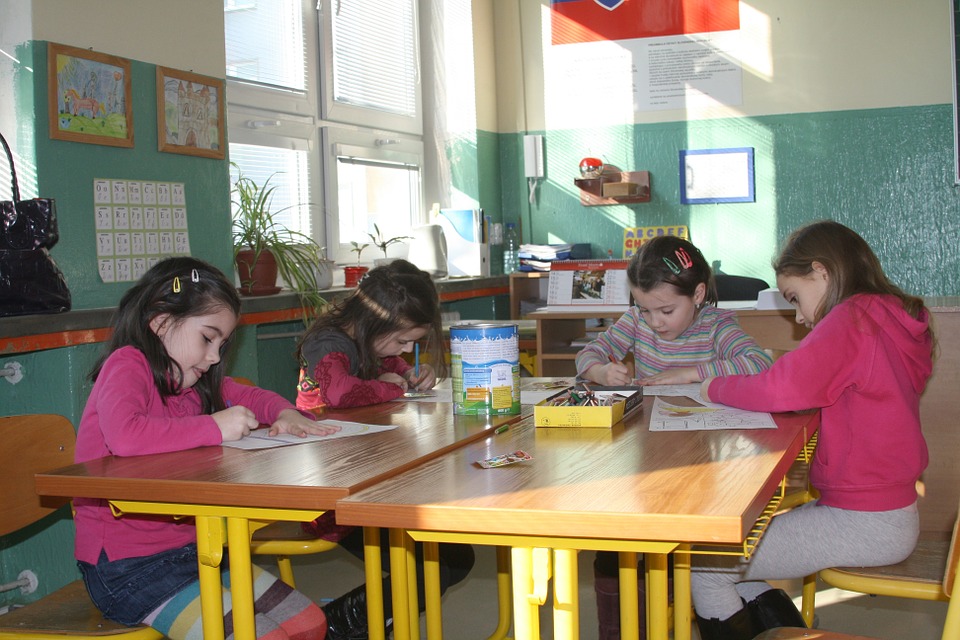Article by Michael Dauncey, National Assembly for Wales Research Service
The Welsh Government recognises that the current special educational needs system is not fit for purpose. The First Minister, Carwyn Jones, has confirmed plans to deliver long-awaited reform through legislation, but what changes would a new Act make?
Reforming the way the education and health sectors provide for special educational needs (SEN) has been on the agenda for much of the devolution era. There is cross-party consensus on the need for change, while stakeholders also anticipate a shift in approach. The First Minister has announced that an Additional Learning Needs Bill will be one of the first areas the Fifth Assembly is asked to legislate on.
What are special educational needs?
 Existing legislation defines children and young people as having SEN if they have a significantly greater difficulty in learning than the majority of their age group, or if they have a disability that prevents or hinders them from using the education generally on offer. For learning difficulties to be classed as SEN they must require interventions that are additional to the different ways of learning usually offered by teachers. In 2014/15, 23% of pupils (105,000) in maintained schools across Wales were officially recognised as having SEN.
Existing legislation defines children and young people as having SEN if they have a significantly greater difficulty in learning than the majority of their age group, or if they have a disability that prevents or hinders them from using the education generally on offer. For learning difficulties to be classed as SEN they must require interventions that are additional to the different ways of learning usually offered by teachers. In 2014/15, 23% of pupils (105,000) in maintained schools across Wales were officially recognised as having SEN.
What did the previous Welsh Government propose?
In 2015, the Welsh Government consulted on a draft Additional Learning Needs and Education Tribunal (Wales) Bill, which had three objectives:
- a single legislative framework with one definition, ‘additional learning needs’ (ALN), for children and young people aged 0-25 with learning difficulties;
- an integrated process with health boards and local authorities working together; and
- a fair, transparent system for providing information and advice, and dealing with concerns and appeals.
To some extent, the Welsh Government has already adopted the concept of ALN as an alternative to SEN. The focus on ALN rather than SEN is therefore relatively established in practical and policy terms, if not yet in law. As well as changing the legal term the draft Bill proposed replacing the current three tier system of intervention with one type of plan. Currently, learners with SEN receive school-led support at either of two levels (School Action or School Action Plus) or, where they have more severe needs, the local authority issues a statement providing a legal entitlement to a specified package of support. This distinction has proved a point of tension. In his foreword to a White Paper in 2014, Huw Lewis, the then Minister, paraphrased reviews of the current process of statements as finding it ‘complex, bewildering and adversarial’. Under the draft Bill, all learners aged under 25 with ALN would have an Individual Development Plan, regardless of their age and the severity of their needs. Over the past ten years, Ministers have considered how best to improve and reform such a process and decided during the Fourth Assembly that a universal plan for each learner with ALN was the best way forward. The draft Bill proposed making statements a thing of the past so whether a learner had one or not would no longer determine the level of intervention. At present, only pupils who have statements have a statutory right to additional provision, equating to 3% of all pupils (12,000). Under the proposed new system, all learners with ALN would have a statutory right to an Individual Development Plan, equating to 23% of all pupils (105,000).
What issues were highlighted during pre-legislative scrutiny?
The Fourth Assembly’s Children, Young People and Education Committee took evidence on the draft Bill and wrote to the Welsh Government in December 2015, highlighting issues Ministers would need to address before introducing legislation. The Committee ‘very much welcome[d] the intention’ to reform the system but found that ‘there is much work to be done’ to address ‘many areas of uncertainty’. The Committee highlighted four main areas:
- inadequate provision for collaboration between local authorities and health boards, with the Committee believing firmer duties on health bodies were needed;
- a call for the universal Individual Development Plans to retain the benefits of the current three-tier approach, which provides more intensive support for more complex and severe needs, and for greater clarity over where responsibilities for plans will lie;
- a need for the Education Tribunal for Wales to have stronger powers when considering appeals from families against local authorities and health boards; and
- insufficient detail on provision at either end of the 0-25 age spectrum, ie what will be in place in early years and at post-16.
What is the current position?
The Welsh Government was considering the responses to its draft Bill, including the results of the Committee’s pre-legislative scrutiny, as the Fourth Assembly drew to a close. The First Minister has said there will be no legislation introduced within the first 100 days of this Assembly but that an Additional Learning Needs Bill will follow ‘once the Assembly is in a position to better scrutinise legislation’. He added that it will be the portfolio responsibility of Alun Davies, Minister for Lifelong Learning and Welsh Language. The Minister will need to consider the outcome of the consultation on the draft Bill and decide what changes to make to the previous proposals. Parents, stakeholders and politicians will scrutinise with interest the latest efforts to resolve an issue which has exercised ministers and policy-makers for over a decade.
Key sources
- Research Service, Committee to carry out pre-legislative scrutiny of draft ALN Bill (2015)
- Research Service, Outcome of Assembly Committee’s pre-legislative scrutiny on draft ALN Bill (2015)
- Research Service, SEN statistics: Numbers of pupils, budgeted expenditure and academic achievement (2015)
- Research Service, Special Educational Needs (SEN) / Additional Learning Needs (ALN) in Wales, (2015)
- Welsh Government, Update on the draft Additional Learning Needs and Education Tribunal (Wales) Bill Consultation (2016)
- Welsh Government, Draft Additional Learning Needs and Education Tribunal (Wales) Bill (2015)
- Welsh Government, Legislative proposals for Additional Learning Needs – White paper (2014)






